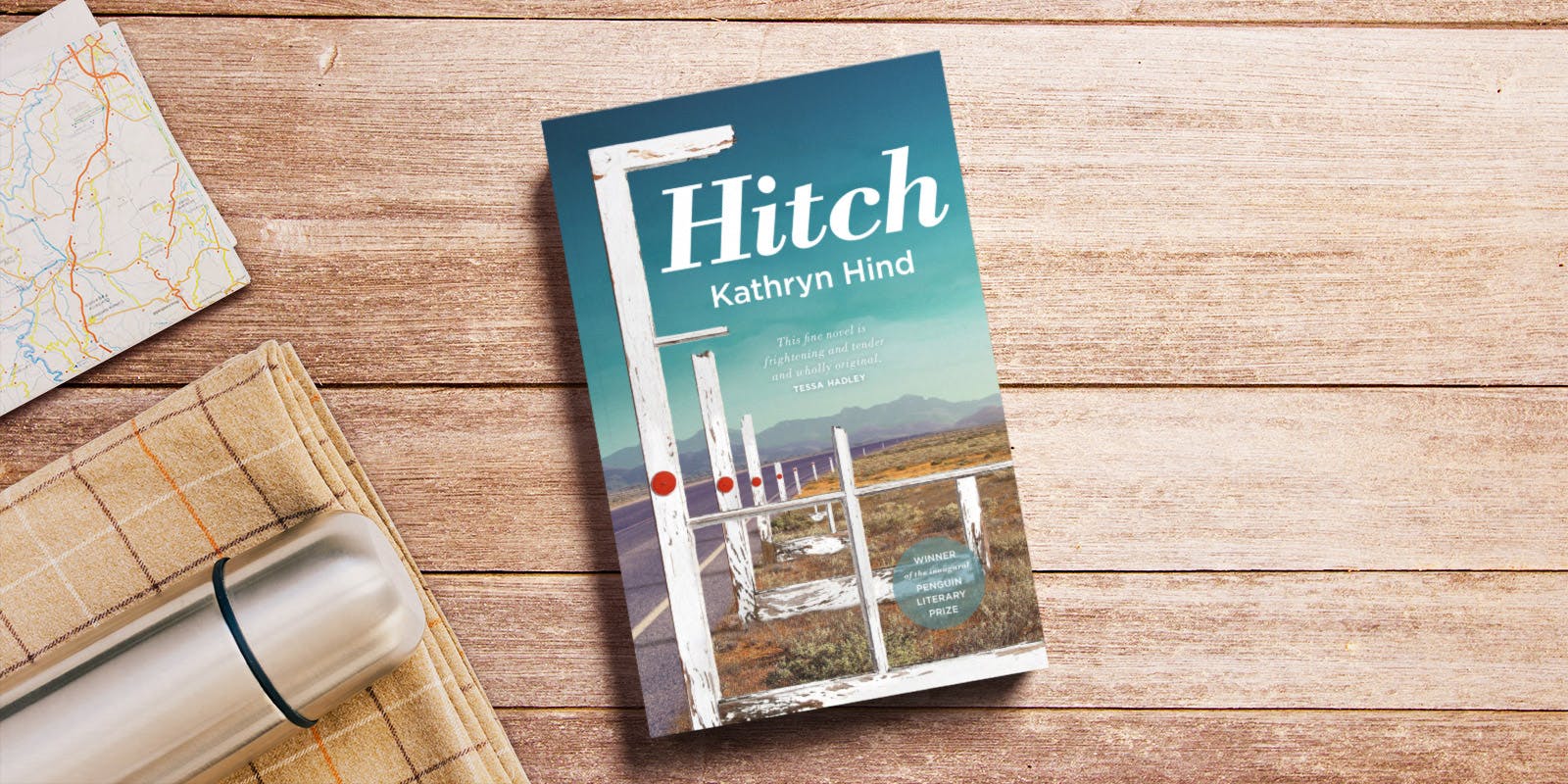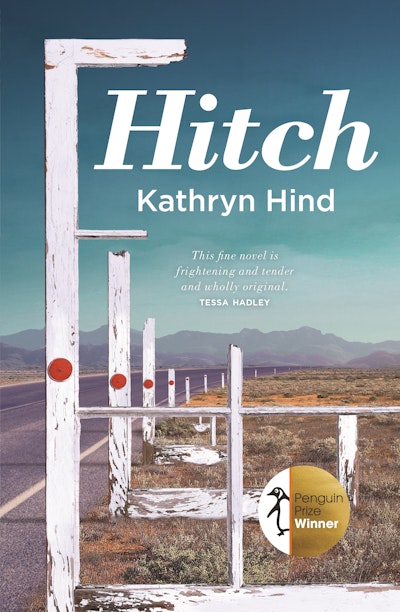We sat down with Kathryn Hind to discuss the inspiration for Hitch, the editing process and what's next for the ACT-based author.
Please tell us about the inspiration behind Hitch?
I started Hitch because the scenario of a woman hitchhiking alone really appealed to me. Amelia didn’t know what would happen next, nor who would stop for her, and neither did I; that left me free to create scenarios that would test Amelia, that would help me to learn more about her. To be a woman travelling alone is a kind of transgression in itself – people tell Amelia that she shouldn’t be doing it. I wanted to explore the limitations and expectations placed on women in Amelia’s situation and the conflict of this given Amelia’s urge to be moving, to be on the road. I also wanted to make the most of the tension that exists within ordinary encounters with strangers given the extra pressure and perceived risk of Amelia’s aloneness.
How did you approach the writing process?
Hitch was about six years in the making. I started it when I moved to the UK and enrolled in an MA in Creative Writing at Bath Spa University. I wanted to restructure my life and place writing at the centre for the duration of the course, at the very least.
I forged ahead through the first draft, taking notes on the feedback I received in my writing workshops but trying to use anything I learned on the writing I did next, rather than attempt to perfect the work I’d already done.
One of the main challenges with Hitch was that it took me up until the final draft to truly work out who Amelia was and what was driving her. She isn’t someone who gives much away and it was difficult to show the many facets of her well-defended self. In the early drafts I was able to experiment with different encounters and situations, while in the final draft I was handpicking and improving the scenes that really showed something new about Amelia, that moved her journey forward in a multitude of ways.
What led you to the Penguin Literary Prize?
I found out about the prize via the Writers Bloc newsletter I subscribe to. I couldn’t believe what I was reading and kept going over the terms and conditions of entry, thinking there must be something that would disqualify me from entering – it seemed too good to be true! I had a few months till the closing date and I planned to revisit Hitch, which I’d put aside for awhile as I couldn’t work out a way around the problems I was having with it.
Describe the moment you found out you’d won.
Winning was simply too much to process. It was being shortlisted that really made me dance. I found out right before bed and was hyperactive for the whole night. I didn’t expect to win; Hitch had been rejected enough times for me to come to terms with the idea that it may never find a home. I missed a phone call from Meredith Curnow and she asked me to call back; I told myself she was just testing to make sure I was actually living in Australia (like she has time to do that!). I called back and she told me I had won. I was home alone and just sweating; once I was off the phone, I didn’t immediately call anyone. I just sat by myself and tried to let the news sink in; I had written the book in solitude and it felt like this moment required a few more moments of a similar aloneness.
What happened next?
I wanted to know that the vision Meredith (my publisher) had for the manuscript was in tune with my own, which it absolutely was. While publication is a kind of holy grail, I wanted to make sure I was proud of what I would eventually put out there and now I can say I absolutely am. That’s what happened next: I returned to the novel with new energy and imagination.
How did you find the experience working with a professional editor?
I adored working with Kathryn Knight, the editor of Hitch. One of the reasons I wanted to get the manuscript published was for the experience of working with a professional editor. Firstly, it was an absolute relief to know that someone would be on the lookout for errors. In one of the first pieces I had workshopped, my tutor pointed out that I had written about a fish tank that was home to both freshwater and saltwater fish – whoops. There is so much to consider and check, and it’s a blessing to know that someone trained in noticing that kind of detail has my back. The greatest pleasure though was talking about my work with someone who truly understood and believed in what I was trying to do in Hitch. It is an honour to have someone pay such close attention to something I've spent so much time crafting, to be able to speak about the work on macro and micro levels.
What’s something you’ve learnt through the publishing process?
There are certainly more stages and wonderful book-loving people involved in the process than I anticipated (a proofreader – what joy!). But most importantly I learnt that the knowledge the book will be published doesn’t actually change the nature of the work. At times during my own edits I would almost be paralysed by the knowledge that the words in front of me, the decisions I made, could be the final ones. To work effectively I had to zone in on the pages in front of me and make Hitch the best version of itself it could be, for the sake of doing myself and the work justice. That has to come first for me, before considering that the book will one day be read, will one day be on a shelf. I feel that making something I’m proud of is the best way to steel myself against the criticism that inevitably will come; not everyone has to like the book, but I have to make sure that I do.
Any advice that resonated on your pathway to publication?
The British author Philip Hensher said ‘see how little you can get away with saying’ and I really took that to heart. I think it can be hard to resist taking hold of the reader’s hand and yanking them through the story, repeating things they might have missed but need to know, sometimes just openly explaining what the reader should take from a scene. By keeping in mind what Philip said, I was able to focus on saying just enough through the actual interactions and drama within Hitch. He also helped me to see that writing ‘plainly’ doesn’t mean that work lacks depth, that in fact, it can allow for complexity to flourish.
Anything you’d do differently next time?
I’m hoping that I’ve begun to fine-tune my inner critic. There are things I cut out from Hitch that I held on to for far too long, even though I had a feeling they just weren’t working and didn’t belong. I think it’s fine to keep it all there for a first draft, but next time as I work through drafts I want to be more honest with myself and the text. It was only when I spent months away from the manuscript that I was able to return to it and be cutthroat about what remained on the page. Next time, I’ll give myself space from the manuscript earlier on in the process.
What next?
I’m working on my second novel as part of a PhD in literature and creative writing. I have an office and dedicated time to write and read; this is an absolute privilege and I plan on making the most of the opportunity.













